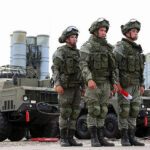What is the BND?
To understand Germany’s place in European security, you must understand the BND. The Bundesnachrichtendienst acts as Germany’s foreign intelligence agency, similar to MI6 in Britain or the CIA in the United States. From Cold War surveillance of the Soviet bloc to exposing Russian cyberattacks today, the German shadow agency plays a crucial role in protecting Europe’s largest economy.
Origins and Development
The BND began in 1956, built from the postwar Gehlen Organisation that had worked with U.S. intelligence. Born in the shadow of the Cold War, it focused on monitoring East Germany, the Soviet Union, and Warsaw Pact countries. Its origins remain controversial due to the number of ex-Nazi officers involved in its early years.
Structure and Mission
The BND reports directly to the German Chancellery, giving the federal government close oversight. Its mission covers foreign intelligence, counterterrorism, and cyber threats. With headquarters in Berlin and major facilities in Pullach and elsewhere, the service runs global networks of analysts and operatives.


Cold War Legacy
During the Cold War, the BND provided NATO with detailed intelligence on Warsaw Pact troop movements and Soviet capabilities. It also infiltrated East Germany, although the Stasi successfully compromised many of its operations. This legacy of rivalry and exposure still shapes German attitudes toward intelligence today.
Russia and Hybrid Threats
The BND identifies Russia as one of Germany’s main security challenges. Russian intelligence networks have targeted German politicians, ministries, and infrastructure. Cyberattacks on the Bundestag in 2015 highlighted these vulnerabilities. The organisation now focuses on countering Russian disinformation, cyber operations, and influence campaigns across Europe.


Partnership with Allies
The German agency works closely with NATO and EU partners, and maintains deep ties with U.S. intelligence. These partnerships strengthen Germany’s ability to track threats it cannot monitor alone. Yet Germany also faces criticism for caution and reluctance to take risks in intelligence operations, reflecting its postwar political culture.
Strategic Importance
The BND remains central to Europe’s intelligence landscape. It monitors Russia, counters hybrid threats, and supplies NATO with vital analysis. For Germany, it serves as both shield and lens, protecting the nation while informing its foreign policy. Understanding the BND means understanding how Europe’s largest state gathers intelligence in an age of hybrid war.










